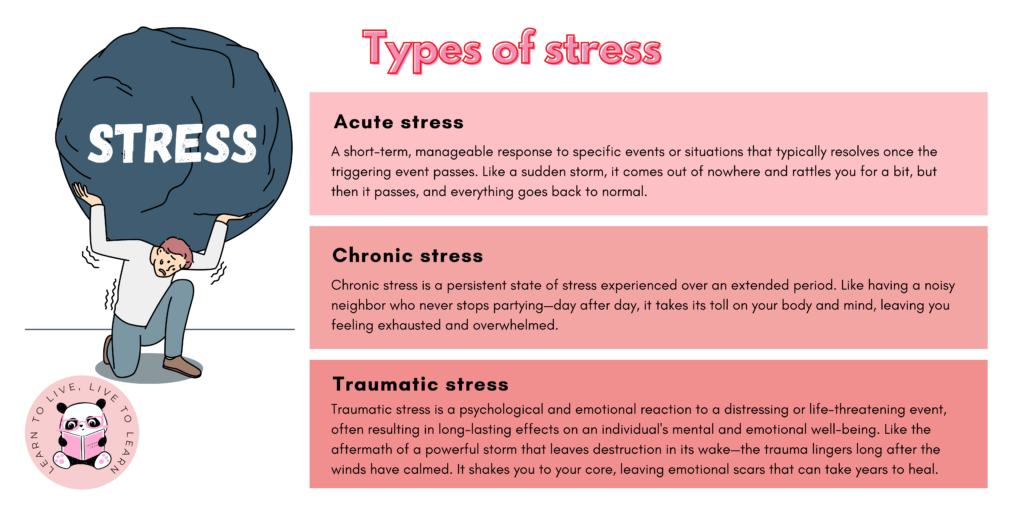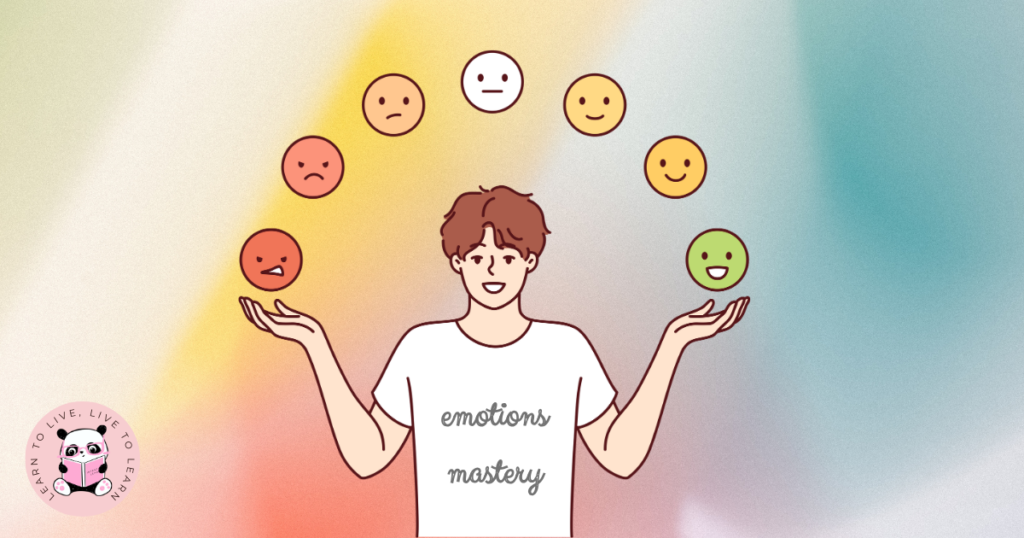Why Some People Handle Stress Better: Stress-Buster vs. Stress-Magnet
Written by Michelle Ong | November 9, 2024

Some people stay calm in chaos, while others crumble — here’s why.
Stress hits everyone.
Sometimes it shows up as racing thoughts and a pounding heart.
Other times it’s the quiet exhaustion that lingers for days — the kind that makes work feel heavier and progress slower.
But have you noticed how some people bounce back quickly while others spiral?
The difference often comes down to habits, mindset, and how you respond in the moments that matter.
Let’s break down what separates stress-magnets from stress-busters — and how these shifts can help you grow not just in life, but in your career too.
What Triggers Stress?
Stress sneaks up on us in two ways:

1. External Triggers
Workload, deadlines, unexpected changes, complex projects, difficult colleagues, family responsibilities.
These hit fast — and often all at once.
2. Internal Triggers
High self-expectations, perfectionism, fear of failing, comparing yourself to others, worrying about your health or loved ones.
These come from within — and usually hit harder.
When stress kicks in, your body goes into survival mode: adrenaline rises, focus narrows, energy drains. Useful short-term… damaging long-term.
Add habits like procrastination, doom-scrolling, and working nonstop — stress multiplies.
💡Learn simple ways to overcome stress here.
Stress-Magnets vs Stress-Busters: What Sets Them Apart?
Some people crumble under pressure. Others stay centered.
Here are the key differences.
1. Time Management Skills
Stress-magnets: procrastinate, overcommit, scramble at the last minute.
Stress-busters: plan ahead, break tasks down, prioritize, and use simple tools (calendars, checklists).
Managing your time is managing your stress, and your career.
2. Mindset: Pessimism vs Optimism
“In the middle of difficulty lies opportunity.” — Albert Einstein
Pessimists get stuck in “everything is going wrong.” Optimists stay grounded but look for solutions instead of spiralling.
Your mindset often determines your workplace resilience more than the situation itself.
3. Coping Skills
“Life is 10% what happens to us and 90% how we react to it.” — Charles R. Swindoll
Healthy coping = talking to someone, resting, hobbies, movement, or taking breaks.
This leads to clarity, better decisions, and stronger performance.
Unhealthy coping = ignoring problems, avoiding tasks, numbing with distractions.
This leads to burnout, avoidance, and stalled progress.
Your choices either release stress… or build it up until it explodes.
4. Boundaries
If you can’t say no, you’ll always end up carrying more than you should.
Stress-busters protect their energy, communicate limits, and avoid overload — which keeps them effective.
Boundaries aren’t selfish; they’re strategic.
5. Emotional Mastery
“It’s not the stress that kills us, it’s our reaction to it.” — Hans Selye
Stress-magnets react from emotion — snapping, panicking, shutting down. Stress-busters pause, breathe, and respond with intention.
They’re emotionally aware.
Emotional mastery is a career superpower.
It builds trust, leadership presence, and better judgment.
6. Control vs Flexibility
Perfectionism and micromanaging create pressure that doesn’t need to exist.
If you believe things only work when you do them, you’ll always be stressed.
Stress-busters embrace flexibility.
They adapt. They adjust. They delegate.
They focus on impact, not perfection.
This is how people grow — and how they lead.
Take Charge Now
“It’s not the load that breaks you down, it’s the way you carry it.” — Lou Holtz
Understanding what triggers your stress and how you respond is the first step toward changing it.
You don’t need to eliminate stress — you just need the right habits, routines, and mindset to handle it better.
When you keep stress at bay, you show up better in your relationships, your work, and your growth.
💡Learn practical ways to handle stress more effectively.
🌱 Reader Reflection
Which stress-buster trait do you want to strengthen this month — time management, boundaries, coping skills, or emotional regulation?


